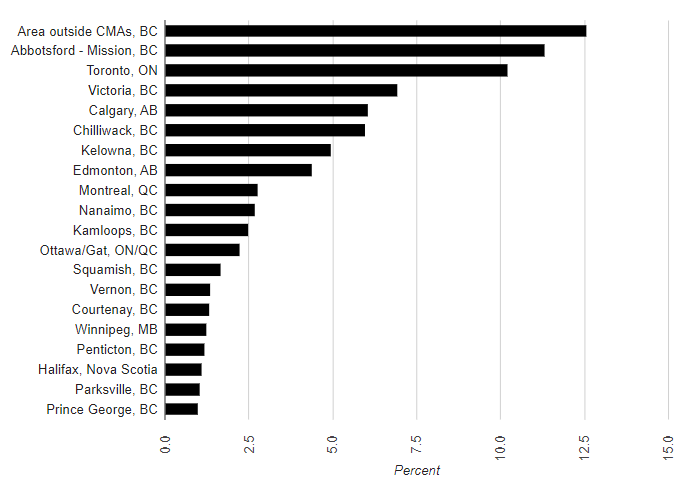Greater Vancouver residents have been increasingly fleeing to the country. New data released by Statistics Canada demonstrates the migration pattern. Former residents are leaving the city for quieter parts of the country. Rural B.C was by far the biggest driver of the phenomenon. Other large cities like Toronto and Calgary had similar fates.
There were 45,481 people that left the Greater Vancouver region in 2019, for other parts of Canada. This represents 6.66% a decrease from the previous year.
Rural B.C. is the leading destination for migrant Greater Vancouver residents. There were 5,751 residents that left Vancouver for new regions of the province, outside of any census metropolitan area (CMA) in 2019. This reflects a drop of 9.67% in comparison to the previous year. This represents 12.57% of migration in its totality, the largest singular data point. The overall number of people is lower, though it remains the most popular place for Canadians to relocate.
The destination and share of people who relocated within the country from Vancouver CMA. Only cities with shares higher than 1% are listed.

Smaller cities in B.C. also attracted a considerable amount of people. The second most popular region was Abbotsford-Mission. The area welcomed 5,180 Vancouverites in 2019, representing 11.32% of total migration. Victoria has the third largest migration rate in B.C and was the fourth most popular destination, welcoming 3,164 new residents in 2019.
Toronto and Calgary are the most popular CMA's for people heading out of Vancouver. The city of Toronto received 4,679 people in 2019, a 1.62% drop from the previous year. This is roughly ten percent of the people who left Vancouver. Calgary welcomed 2,775 former Vancouverites, an increase of 1.95% from last year. This represents about six percent of the people who left.
This newly released data began measuring these trends before COVID-19, though it most definitely accelerated home purchases in the suburbs.
